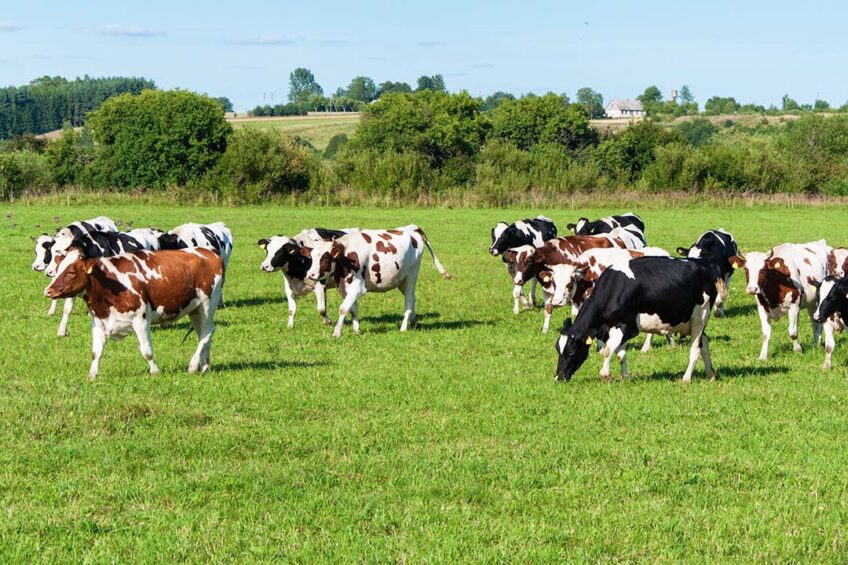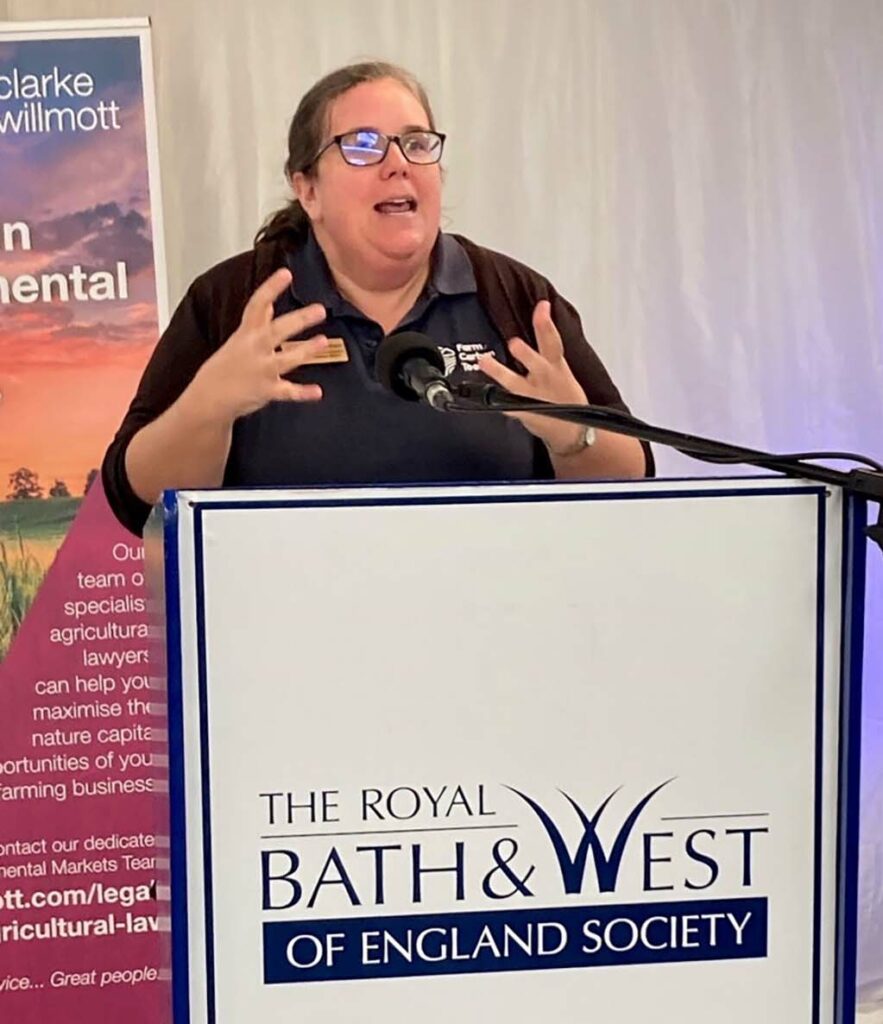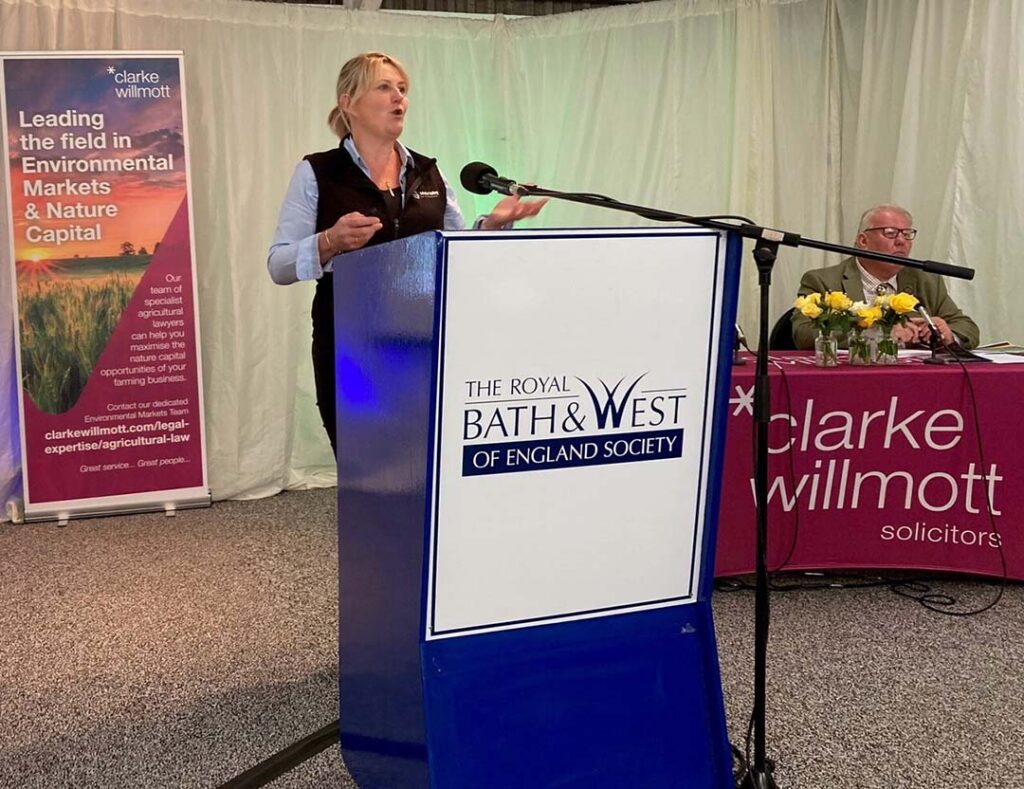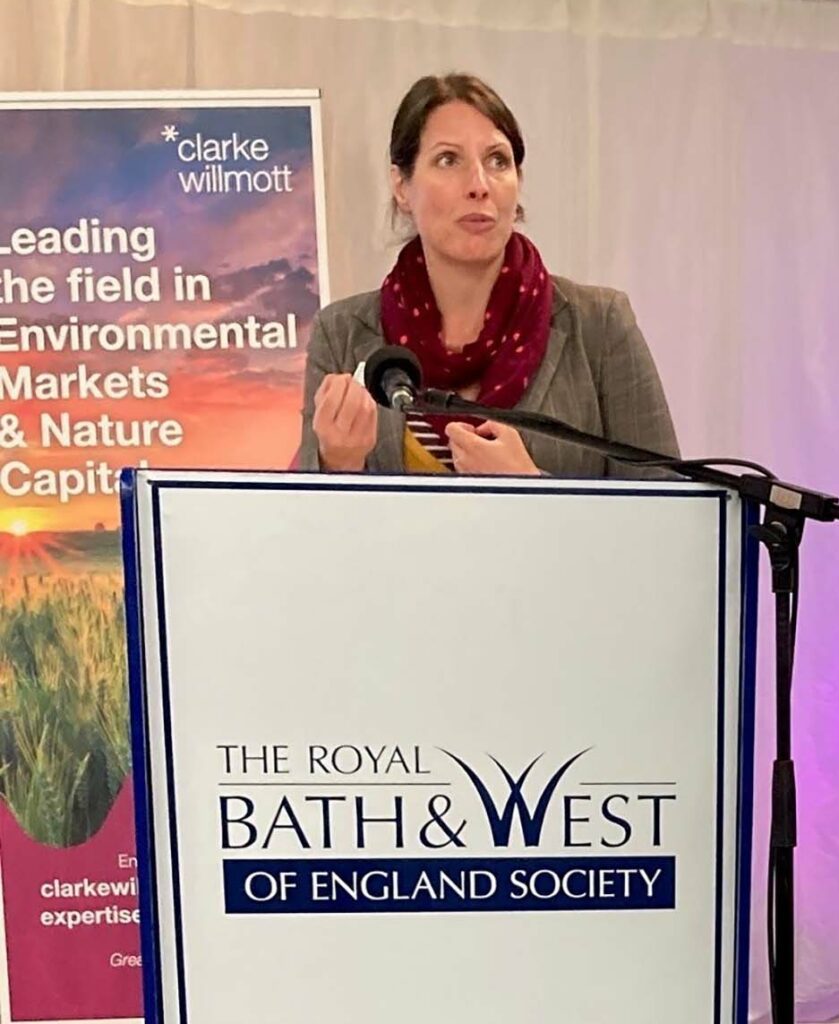Net zero on-farm: A hot topic at UK dairy show

The benefits of achieving net zero on farms was at the centre of the ‘Carbon Talks’ discussions at the 2023 Dairy Show at Shepton Mallet, UK.
Learning about how farms can reach net zero through reducing and offsetting was a key element of the seminar programme at last year’s Dairy Show.
Dr Hannah Jones, carbon and soils adviser with Farm Carbon Toolkit, spoke of the 5-year lottery-funded project in Cornwall involving 43 farms, which runs until 2026. The aim is for 40 of these to reduce their carbon footprint by 30% over 5 years and for the remaining 3 to eliminate their emissions.
Jones highlighted how an increase of 0.5% soil organic matter over 5 years on a 50-hectares farm could save 532 tonnes CO2 equivalent, while 5-10-year-old mixed woodland over 5 hectares could net a further 38.6 tonnes, and moving from annual to 3-yearly hedgerow cutting over 10,000m would also net a further 26 tonnes reduction.

She said the farming community had embraced bi-crop trials, with intercrops, such as cabbage trash grazed by dairy beef, being designed to support improved soil health between rows and for grazing post cabbage harvest. Such projects are being undertaken by Andrew Brewer, who farms 1,000 acres (405 ha) at Fraddon, near Truro, to help him understand how field vegetables can be best integrated into a forage-dominated rotation, how the detrimental impact on soil structure can be minimised, and what the best follow-on seed mixture is after cabbages to maintain/restore soil quality.
Regenerative project
Becky Willson, technical director at Farm Carbon Toolkit, talked about the Yeo Valley regenerative project in Somerset and the soil carbon sequestration in grassland systems. There is an ongoing debate about how much more carbon soils can take, adding that some people think planting trees is now the best way forward.
Willson admitted there are accounting challenges for soil carbon – there are lots of supply chains now making net zero pledges without the required metrics to show enhanced carbon removals through engaging with their farmer suppliers.
Models are also incredibly difficult to use in livestock systems, due to the variation on-farm, but she said farmers are achieving great things in terms of soil carbon sequestration, which should be able to be included in carbon calculators.

But there has been substantial progress with the project, involving a cohort of 27 farms, which has seen 1,141 fields on 6,033 hectares sampled across a variety of soil types and depths from 0-50 cm. Across the total area, 1,394,742 tonnes of carbon have been found – a CO2 equivalent of 4,839,755 tonnes.
Understanding soil carbon
Lisa Hambly, head of grassland and forage agronomy at Mole Valley Farmers, spoke about understanding soil carbon at a practical farm management level, highlighting the need to take soil tests and carbon checks and continually monitor. She said it is important for farmers to eliminate competition, reduce ploughing and soil movement, grow healthy crops and increase root variety to steer away from monoculture, reduce weeds and carry out regenerative practices. Among the to-do essentials are:
PH – lime is a soil conditioner and corrects soil acidity by neutralising acids, allowing the micro-organisms and earthworms to thrive and break down plant residues, animal manures and organic matter. Liming acidic grassland soils can release up to 80 kg/ha of nitrogen from organic matter pools, as soil biological activity, including earthworms, usually increases and mineralises organic nitrogen when the soil pH is higher.
Clover/legumes – setting your own nitrogen into the soil reduces the need for bought-in nitrogen use, although matching the carbon/nitrogen is important; this will help with nitrous oxide emissions.
Having roots in the ground all year round – make sure you cover soil to reduce soil respiration.
“Managing our soil carbon storage is the most important thing we can be doing. Collectively, we can make a difference. We are looking after our future,” she added.

Oliver Rubinstein, Trinity AgTech customer success manager, spoke of the value of natural capital, adding that it is beginning to open up new income streams, which may help build a sustainable and resilient farm business.
Rubinstein said carbon calculators to collate and analyse data gathered on farms can then be used to add value to the holding, as well as countering misinformation in the industry through positive environmental statistics.
Attractive alternative
Caroline Waller, agricultural planning partner for Clarke Willmott, said the natural capital market can be seen as an attractive alternative given that basic payments are being phased out and there are ongoing delays with the Sustainable Farming Incentive.
Waller said trading could be possible in areas such as biodiversity net gains, carbon sequestration, nutrient neutrality and water neutrality, but that it is vital to take legal advice over such issues as categories of environmental services being sold and whether to pursue a “stacking” policy that meets the needs of your business.
Contracts need to be clear on issues such as right to roam, obligations to manage land and conservation covenants, she added.






